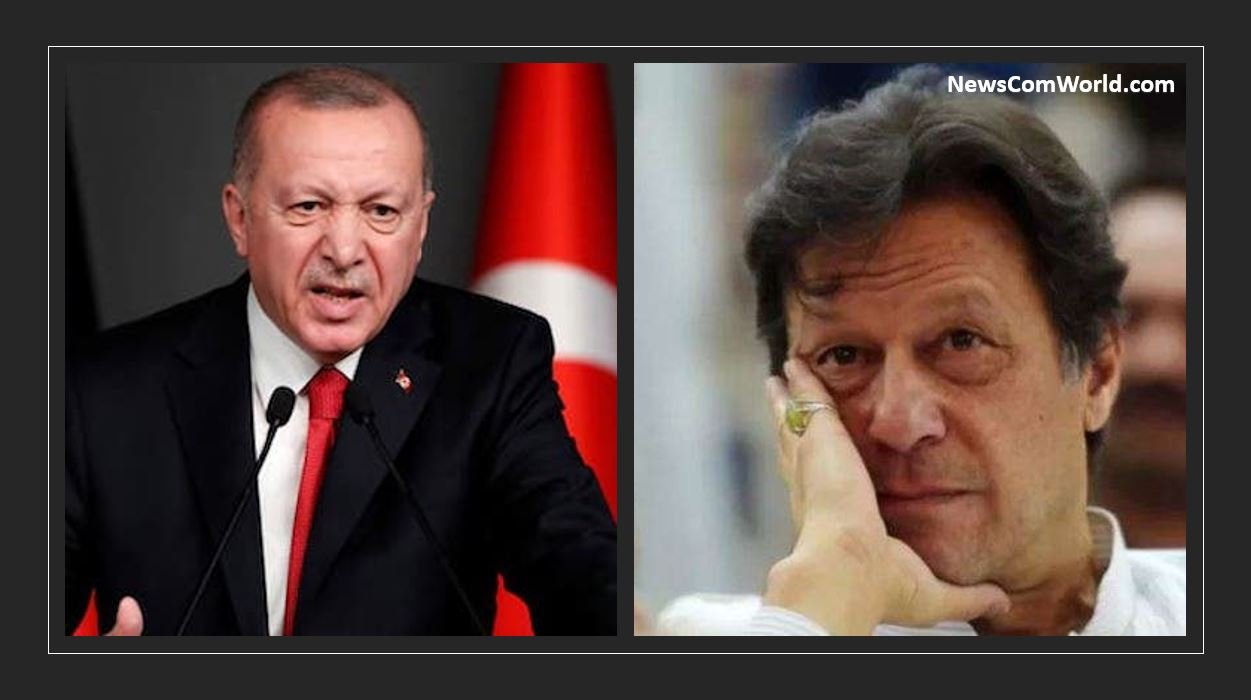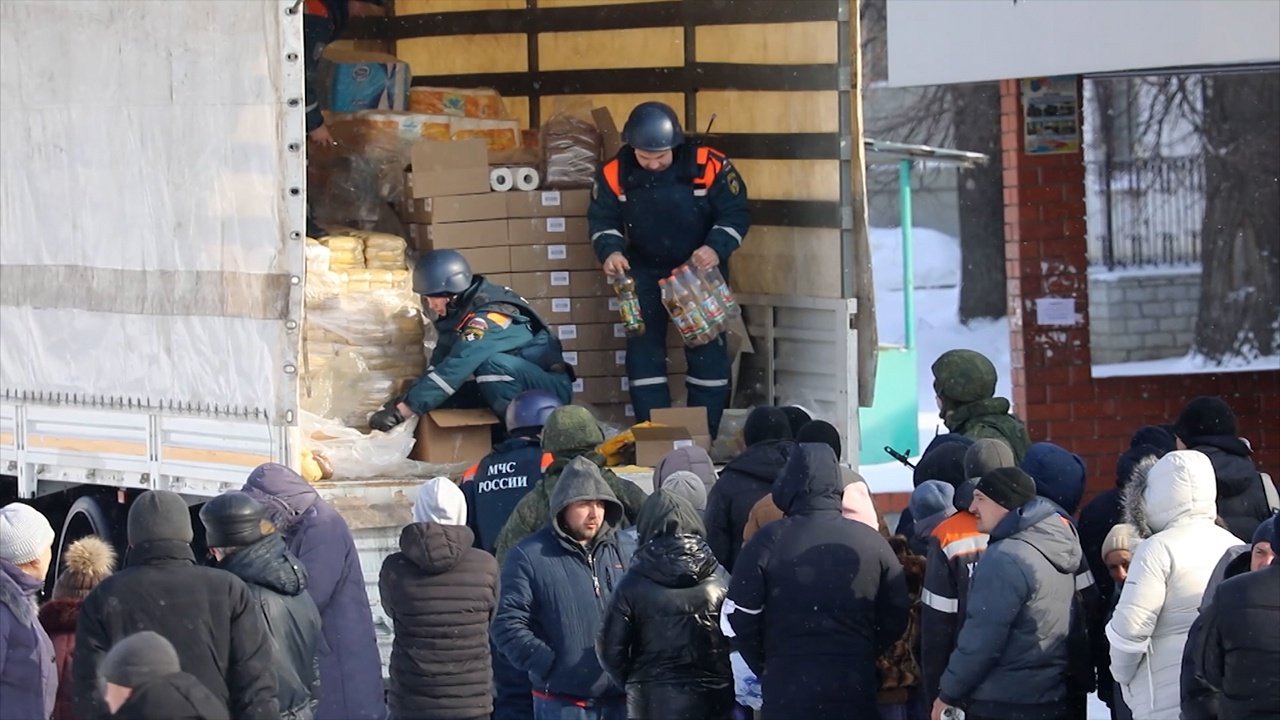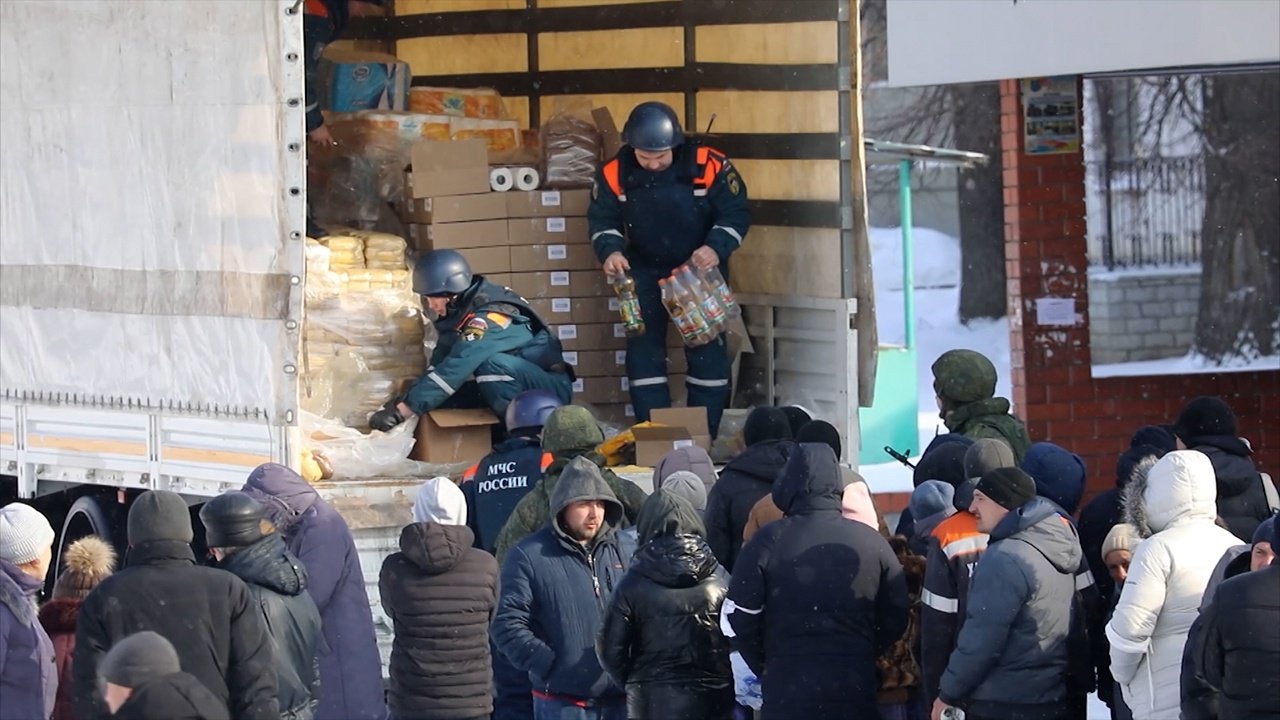Belligerent Imperialist Turkey is being condemned worldwide. Periodically stoking tensions with Greece and Cyprus has always been a part of Turkish foreign-policy strategy. This time is far more dangerous, however, because there are signs Turkey might be ready to escalate its confrontation beyond mere rhetoric.
Cyprus on 5-August 2020 said it would work with France to procure and develop arms and jointly train military personnel as part of a defense cooperation agreement. On 15-August 2020, it was announced that a 2017 defense cooperation agreement between Southern Cyprus and France had entered into force this Aug. 1.
According to a statement, the 2017 agreement also aims to bolster security at sea and around offshore hydrocarbon drilling areas, improve crisis management and combat extremism and piracy.
The Cyprus government has licensed French energy company Total which, along with partner Eni of Italy, will carry out exploratory drilling in seven of 13 areas, or blocks, south of the ethnically divided island nation.
Turkey, which doesn’t recognize European Union member Cyprus as a state, has dispatched warship-escorted research and drilling vessels in waters where Cyprus has exclusive economic rights, including in areas licensed to Total and Eni.
French President Emmanuel Macron has condemned Turkey’s actions and called for stronger sanctions against the country following talks with his Cypriot counterpart in Paris last month.
Belligerent Imperialist Turkey’s vice president on Aug. 16. criticized newly announced defense cooperation between France and the Greek Cypriot administration of Southern Cyprus.
Related Article Neo-Ottoman Dream – End Of Turkey And Erdogan
“It is unacceptable under any circumstances that France organizes joint exercises with the Greek Cypriot administration and deploys its military aircraft to the island contrary to the 1959-60 agreements,” Fuat Oktay said on Twitter.
“It is essential for France not to seek adventure in Cyprus-related matters, and act much more responsibly.”
“No attempt contrary of Turkey and the TRNC [Turkish Republic of Northern Cyprus] has a chance of succeeding in the Eastern Mediterranean,” he threatened.
He underlined that Turkey will continue standing with the Turkish Cypriots to provide unconditional support to their just and legitimate struggle as well as “resolutely” continue the exploration within its jurisdiction area with the drill ship Yavuz.
Tension mounted in the Eastern Mediterranean on 8-October 2019 as the Belligerent Imperialist Turkey Navy practically encircled Cyprus with almost 20 vessels, including frigates and submarines.

Turkey’s move coincided with the imminent launch of operations by the Yavuz drillship within Cyprus’ exclusive economic zone (EEZ), while the Barbaros vessel is also conducting seismographic research in the island’s waters.

At the same time, there were no French or American military forces present in the region.

This absence of Western powers with economic interests in the region at a time when Belligerent Imperialist Turkey is blatantly violating Cyprus’s EEZ is seen to signify that countries like France and the United States clearly want to avoid a militarization of the crisis in the Eastern Mediterranean, which is something that Ankara obviously wants.
Condemnation of Turkey’s Action by Cyprus Government
In a strongly worded statement, the Cypriot government on 11-October 2019 denounced the arrival of the Turkish drillship Yavuz in an area licensed to France’s Total and Italy’s Eni as “utterly provocative and aggressive behavior,” in defiance of international calls to respect the east Mediterranean island nation’s sovereign rights.
It said the Turkish government is putting regional stability and security at risk by choosing to “irreversibly depart from international legality,” adding it would not yield to “threats and bullying tactics” of a bygone era.
“Illegality, no matter how often it’s repeated, does not generate law,” the Cypriot government said, adding that it would step up its legal and diplomatic fight, especially within the European Union.
Eni and Total have teamed up to expand their oil and gas search off Cyprus and currently hold licenses for seven of Cyprus’ 13 blocks inside the island’s economic zone.
Other licensed companies include ExxonMobil and Texas-based Noble Energy along with partners Shell and Israel’s Delek.
Turkey doesn’t recognize Cyprus as a state and claims some 44% of the island’s exclusive economic zone as its own, saying it’s acting to protect its interests and those of breakaway Turkish Cypriots.
The EU has already imposed sanctions against Turkey for earlier drilling activities in waters where Cyprus has exclusive economic rights but that aren’t licensed out to energy companies. The Yavuz is the second warship-escorted drillship that Turkey has dispatched to drill off Cyprus, joining the Fatih and other research vessels.
The Cypriot government has issued international arrest warrants against top executives from energy companies assisting the Turkish drillships.
The Yavuz has sailed into an area some 50 miles (80 kilometers) off the town of Paphos on Cyprus’ southwestern coast, which is licensed to Eni and Total but which Belligerent Imperialist Turkey claims partly falls within its own continental shelf.
Another twist in Turkey’s Syria operation: Mustafa Akıncı, the president of the Turkish Republic of Northern Cyprus (TRNC) condemned Turkish Operations in Syria
A statement of Mustafa Akıncı, the president of the Turkish Republic of Northern Cyprus (TRNC), criticizing Turkey’s military offence in northeast Syria that was launched on Wednesday has ignited a full-blown spat between Turkish Cypriot government and Ankara.
Accusing Belligerent Imperialist Turkey of waging a war in northeast Syria by its military incursion dubbed Operation Peace Spring, the Turkish Cypriot leader said the naming of the offence was reminiscent of Turkey’s military intervention to Cyprus in 1974.
“Even though we called the offensive in 1974 Operation Peace, it was a war and blood was spilt,” Akıncı said referring to Belligerent Imperialist Turkey invasion of Cyprus in 1974 to oppose a Greek nationalist coup that aimed to unite the island with mainland Greece.
Cyprus is split between the Republic of Cyprus and the Turkish Republic of Northern Cyprus following the invasion of Turkey, which has since maintained a military presence in the northern part of the island.
“Now, even if we say Operation Peace Spring, what is being spilled is not water, it is blood. For this reason, it is my greatest wish that dialogue and diplomacy come into play as soon as possible,” Akıncı said on social media.
Akıncı said he always wanted the best for Turkey and elimination of the country’s terror problem, adding that peace would not come with another bloodshed nevertheless.
“I think a happy and peaceful future for Turkey is only possible with building dialogue between all peoples of the region, including Turks, Kurds, Arabs and Turkomans, he said.
Akıncı said he had lost his friends like many others during 1974’s offensive and learned what the war means by experience.
“Therefore, I do not want any society to experience the suffering of war. I can not desire any Turkish-Kurdish-Arab child to even have a nosebleed.”
Turkish Vice President Fuat Oktay condemned Akinci’s statement.
Turkey has said its drilling operations, which are raising tensions in the region, are taking place inside its continental shelf, and therefore comply with international law.
But the EU has threatened to impose sanctions on Turkey if it continues what EU Commission President Jean-Claude Juncker described as “illegal drilling”.
In June, the European Council – the EU government leaders – called on Turkey to “show restraint, respect the sovereign rights of Cyprus and refrain from any such actions”.
Turkey is a candidate for EU membership but its negotiations are currently frozen. The EU Commission has said President Recep Tayyip Erdogan’s government has backtracked on pledges to improve justice and the rule of law.
Cyprus has called Turkey’s decision to send another oil and gas drilling ship into waters off its coast an “utterly provocative and aggressive” violation of its sovereign rights.
Ankara has employed “bullying tactics of an era long gone” by sending the most recent drill ship to a region off the island’s southwestern coast, the presidency said in a strongly worded statement on Friday.
“This new provocation is exemplary of Turkey’s defiance of the European Union’s and the international community’s repeated calls to cease its illegal activities,” it said.
History of Cyprus – How Turkey misused its fiduciary power and invaded Cyprus
The island became like this due to the dramatic events of 1974 but we need to look a bit further back in the island’s history to fully understand of the context behind these events.

In 1571, the island was conquered by the Ottoman Empire, and for the first time in thousands of years, the island’s demographics were changed, from a predominantly Greek population, to a Greek majority with a significant Turkish minority. Cyprus was part of the Ottoman Empire for centuries. Treatment of the Greek Cypriots varied significantly during this time and there were numerous uprisings against Ottoman rule. The Greeks and the Turks rarely lived together in harmony. In the 1820s, Greece (also under Ottoman rule) fought a successful war for Independence. The Cypriots revolted at the same time but their revolt was crushed by the Ottomans. In the year 1878 Cyprus came under British administration in secret treaty with the Ottomans, which the British would protect their territorial sovereignty from Russia, while securing themselves a strategic position to defend their trade routes to India through the Suez Canal. The Ottomans maintained sovereignty over the island, but it was placed under British administration.

In World War I however, the British and Ottoman Empires found themselves on opposing sides, and so the island was annexed by Great Britain. Never ever since the independence of Greece, the vast majority of Greek-Cypriots had been calling for what’s known as “Enosis” – union with Greece.
After World War II, it became increasingly difficult for Great Britain to morally justify their extensive empire. All of their colonies that had fought alongside them to fight for the freedom of the world, now wanted freedom for themselves. The British Empire did of course go through an extensive period of decolonization, but with Cyprus, there was a problem.
Recommended Article Haftar blames Turkey for helping rivals GNA invade Gharyan city: Orders forces to attack Turkish ships and bans flights to Turkey
The island has been described as an “unsinkable aircraft carrier”, and geographically speaking, it was just too valuable to give up. From Cypris, the Royal Air Force could reach three different continents with ease. Cyprus is just 100 miles from the Middle East, and the Suez Canal is just 200 nautical miles to the south.
Now, while the Greek majority of Cyprus often rebelled against British rule, the Turkish minority were relatively content with it. The Turkish-Cypriots absolutely did not want enosis.
In the first decade after the second world war, the British tried to offer Cyprus self-government, without actually giving up any sovereignty. IIn 1950, a man who would become known in Cyprus as the “Father of the Nation” was elected as its leader – Archbishop Makarios III.
Of course, this didn’t satisfy the Greek-Cypriots, and the desire for enosis grew stronger and more violent. In 1955, a nationalist guerrilla organisation, called EOKA, was formed to end British rule in Cyprus, with the ultimate goal bring union with Greece. The main figurehead behind the enosis campaign was Colonel George Grivas, a Cyprus-born WWII veteran of the Greek Army.
In the late 1950’s, the British declared a state of emergency on the island of Cyprus as the anti-colonial violence escalated. In 1958, a rival organisation in opposition to EOKA was formed, the TMT, or the Turkish Resistance Organisation, formed by the Turkish-Cypriot minority. Their ultimate goal was the partition of the island, or “taksim”. The two communities generally lived in quite segregated neighborhoods, and the Turkish minority of Cyprus wanted the island to be politically divided.
So the Greeks of Cyprus wanted to join Greece, and the Turks wanted to partition the island. In the end, they got what nobody wanted: Independence. The president of the republic was to be Greek, and the vice president Turkish. The president was Archbishop Makarios, who was actually exiled to the Seychelles in 1957 for his promotion of enosis but was allowed to return.
The Republic of Cyprus became a country in 1960, but it wasn’t really a fully independent country. Three other countries still had a huge say in what went on the island, the three ‘guarantors’ of Cyprus that signed the very treaties that gave the country its independence: Greece, Turkey and the United Kingdom. Also they didn’t even have control of the whole island, the British held onto the land around their military bases. The treaties of Cypriot independence banned the country from entering into a union with another country (i.e. no enosis), and each of the three guarantors had the right to intervene in Cypriot affairs to maintain the status quo.
In 1963, president Makarios made a number of proposals for constitutional changes, ostensibly due to governmental dysfunction, that would remove many of the rights of the Turkish minority. This led to an eruption of ethnic violence between the Greeks and the TUrks. Many of hardliner EOKA sought to rid the island of “undesirables”, i.e. the Turks. The violence peaked in December in what became known as “Bloody Christmas”, in which there were hundreds of casualties on both sides. Thousands of Turkish-Cypriots were run out of their villages, with many leaving the island altogether, and hundreds more were taken hostage. In 1964, a UN resolution was passed to deploy a peacekeeping force to Cyprus, as the island was on the brink of an all-out civil war, or worse still, potential war between two NATO members, Greece and Turkey. Despite the UN force, the violence did not stop. The two communities had to be physically separated in the nation’s capital city, Nicosia, as British soldiers erected barriers.
Another country that was heavily involved in the Cyprus dispute throughout the 60s and 70s, just not publicly, The United States. The United States was very much involved in Cypriot affairs, the CIA operated extensively throughout the island, and the US would often try to covertly ‘pull the strings’ to get their desired outcome.
Since it was becoming obvious that the 1960 solution was not working, London and Washington secretly agreed that a potential way to solve the impasse would be partition of the island. They began to develop a back-up plan to encourage Turkey to invade Cyprus and take control of a pre-lineated portion of the island. The invasion didn’t happen. at least, not yet.
But this begs the question.. Why? Why would the UK and US want to partition the island? Well, this was the 1960s, the height of the Cold War. Having a strong Turkish presence on the island would at least prevent the country of Cyprus from falling into the Soviet zone of influence. The Cypriot president had already caused some controversy by making some connections with Eastern Bloc nations. Having an ally of the Soviets so close to NATO’s southern flank would have been disastrous, especially for Turkey, but for NATO as a whole too. Turkey was an extremely important ally of the US, they were quite literally the border between east and west.
In 1967, the Greek government was taken over by a far-right military junta in a coup, ousting the democratically elected prime minister. Now, the president of Cyprus had been a strong advocate of enosis, but he certainly didn’t want a union with a military dictatorship in Athens. This caused massive disagreements between himself and George Grivas, still leading the fight for enosis.
Over the next few years, Makarios would be the target of five assassination attempts, as the Greek-Cypriot hardliners tried to overthrow his leadership, as he was unwilling to pursue union with Greece.
In 1974, Cypriot Intelligence discovered a plan to overthrow the President. This time though, it wasn’t from the Greek-Cypriots, but from Athens. Yet another military junta had taken over in a counter-coup, and now they had their eyes set on Cyprus. The coup was successfully carried out by the Cyprus National Guard. With the help of the RAF, Archbishop Makarios was flown to London for his safety. He was replaced by Nikos Sampson, former member of an EOKA execution squad, who fought against British rule in the 1950s.
The United States were quietly content that Makarios was out of the picture due to his, somewhat tenuous, links to communism. It was later revealed that the CIA was well aware of the plot to overthrow the government, but nothing was done to stop it. Turkey was understandably furious with the coup and made clear their intention to invade Cyprus. Turkey cited Article 4 of the Treaty of Guarantee, which states that “each of the three guaranteeing Powers reserves the right to take action with the sole aim of re-establishing the state of affairs created by the present Treaty“.
History of Cyprus: First Belligerent Imperialist Turkey Invasion
5 days after the coup, Turkish troops landed in Cyprus. The initial invasion only lasted 2 days, as an emergency UN Security Council meeting called for a ceasefire. Turkey had captured about 3% of Cypriot territory. Both military dictatorships, in Cyprus and in Greece, fell apart due to the invasion. Sampson resigned just 3 days after the invasion began.
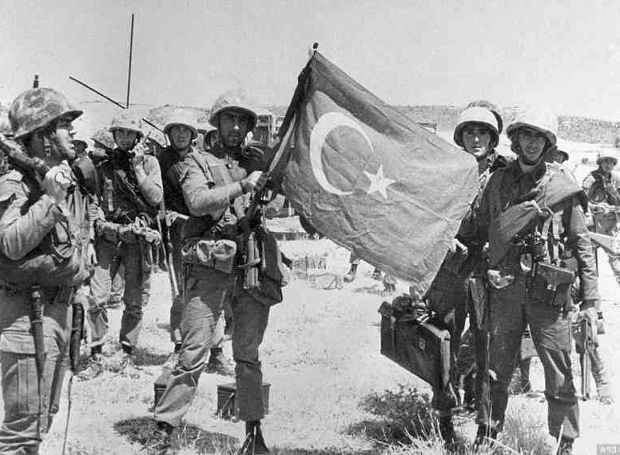
Mediation talks in Geneva between the Three guarantor powers tried to solve the dispute diplomatically, and avoid any further casualties, but the talks became deadlocked.

Now at this point, the International Community and public opinion were largely sympathetic towards Turkey and the Turkish-Cypriots. The Cypriot government had been taken over by a coup with the intention of joining with Greece against the will of the Turkish minority.
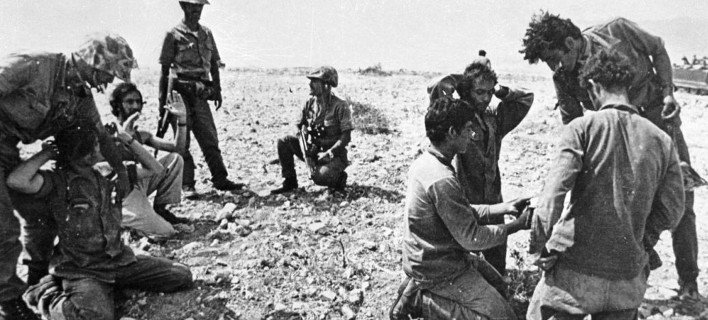
History of Cyprus: Second Belligerent Imperialist Turkey Invasion
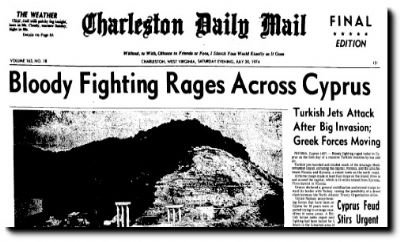
However, from 14th August onwards, things quickly changed. Turkey launched its second invasion of Cyprus – Operation Attila Two. This time, it was a full-scale invasion against a much weaker opponent. The fatality numbers reached into the thousands, and about 200,000 Greek Cypriots were forced to abandon their homes. Several Turkish-Cypriot community villages were raided by the Greek-Cypriot organisation EOKA-B as response to the invasion, with more than 200 civilian casualties in the first day of the invasion.
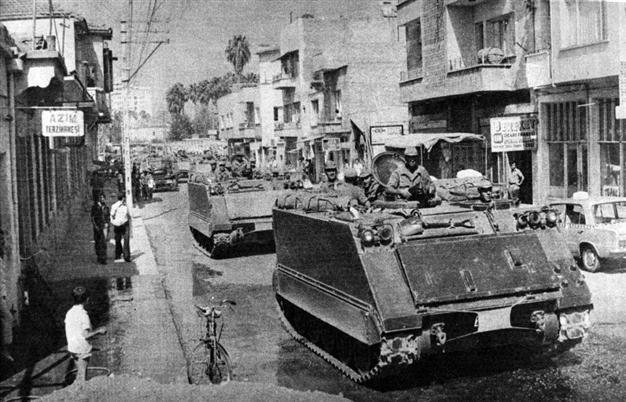
By the end of the invasion, Turkey had taken control of about 37% of the island of Cyprus. This territory made up approximately 70% of the total gross domestic product of the Republic of Cyprus. General sympathy an understanding swiftly turned to almost universal condemnation. The Treaty of Guarantee gave Turkey the right to intervene in Cyprus, but the treaty was made for the purpose of guaranteeing the independence, territorial integrity, and security of Cyprus, but in the end, Turkey did the exact opposite. They forcibly took control of a large portion of the island, causing a de facto partition of the country.
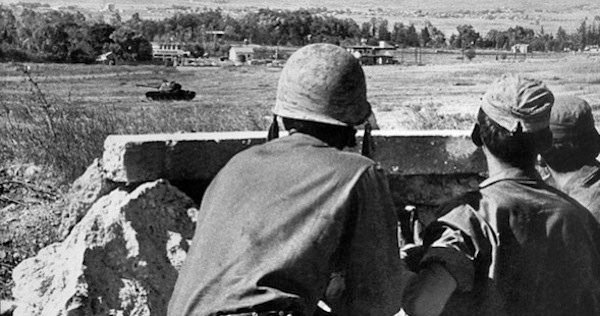
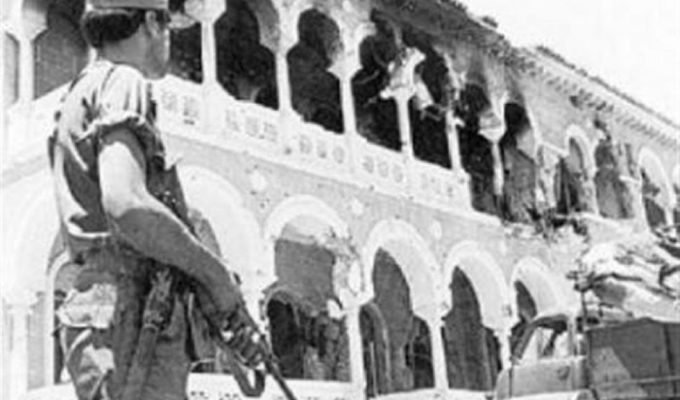
When looking at how Cyprus became divided, one can’t help but wonder, how was this allowed to happen? How was a NATO member allowed to launch a full-scale invasion against another sovereign state? Greece demanded to know why no action was taken to stop Turkey. Realistically the only country that would have been able to stop the invasion was the United States, but the man who single-handedly in charge of US foreign policy with regards to Cyprus, Henry Kissinger, chose not to intervene. In fact, it was quite the opposite: he encouraged the invasion.


There had been talks of British pulling out of Cyprus altogether in a round of defense cuts, and Kissinger was worried about having absolutely no NATO presence on the island. Turkey occupying a large part of the island would ensure a NATO presence, and prevent Cyprus from falling into the Soviet sphere of influence, so Kissinger was happy to let the invasion run its course. After the conflict was over, the UN organized the transfer of 51,000 Turkish-Cypriots from the south to the north, as the island became ethically split. IN addition, Turkey proceeded to encourage thousands of Turkish citizens from Anatolia to settle in Northern Cyprus, despite this being in direct violation of article 49 of the Geneva Convention.
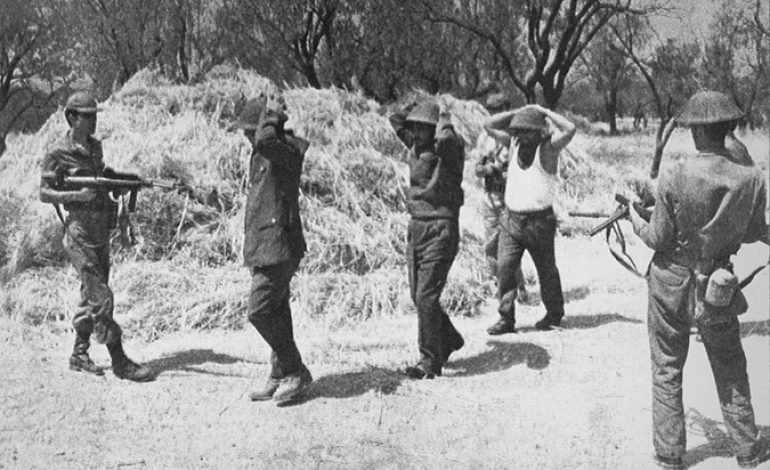
In 1983, the Turkish Republic of Northern Cyprus was proclaimed, and was received absolutely no international recognition except from Turkey itself. In many ways, Cyprus is a victim of its own geography. Its violent past was partly caused by the island’s strategic position in the world of geopolitics. Of course, the underlying reason for the violence was the inter-ethnic conflict between the Greeks and the Turks of the island, but this was very willfully ignored or even exacerbated by the West if it were in NATO’s best interest. Even to this day there are tens of thousands of Cypriots still hoping that someday they will be able to return to their homes from which they were displaced. Cyprus joined the EU as a divided island in 2004, three decades after the invasion, and many were hopeful that this would help solve the dispute. In the same year there had been a referendum on a plan to reunite Cyprus which ultimately failed, however there does seem to be a genuine desire among Cypriot citizens to solve the dispute once and for all. It’s hard to predict what will happen next, only time will tell what the fauture holds for Cyprus.
Northern Cyprus aka Turkish Republic of Northern Cyprus (TRNC) aka Turkish Occupied Northern Cyprus
Northern Cyprus (Turkish: Kuzey Kıbrıs), officially the Turkish Republic of Northern Cyprus (TRNC), is a de facto state that comprises the northeastern portion of the island of Cyprus. Recognised only by Turkey, Northern Cyprus is considered by the international community to be part of the Republic of Cyprus. The United Nations recognises it as territory of the Republic of Cyprus under Turkish occupation.
A coup in 1974, performed as part of an attempt to annex the island to Greece, prompted the Turkish invasion of Cyprus. This resulted in the eviction of much of the north’s Greek Cypriot population, the flight of Turkish Cypriots from the south, and the partitioning of the island, leading to a unilateral declaration of independence by the north in 1983. Due to its lack of recognition, Northern Cyprus is heavily dependent on Turkey for economic, political and military support. The European Union considers the area not under effective control of the Republic of Cyprus as EU territory under Turkish military occupation and thus indefinitely exempt from EU legislation until a settlement has been found. The status of Northern Cyprus has become a recurrent issue especially during the recent talks for Turkey’s membership of the EU where the division of the island is seen as a major stumbling block in Turkey’s road to membership.
Berat Albayrak, Turkey’s finance minister is the son-in-law of Turkish President Recep Tayyip Erdogan. Turkey has a high level of influence over the country’s politics. This has led to some experts characterising it as an effective puppet state of Turkey.
The Turkish Army maintains a large force in Northern Cyprus. While its presence is supported and approved by the TRNC government, the Republic of Cyprus, the European Union as a whole, and the international community regard it as an occupation force, and its presence has been denounced in several United Nations Security Council resolutions.

The official language is Turkish. The vast majority of the population consists of (99%) Sunni Muslims.
Turkish Armed Forces maintains the Cyprus Turkish Peace Force which consists of around 30,000–40,000 troops drawn from the 9th Turkish Army Corps and comprising two divisions, the 28th and 39th. It is equipped with a substantial number of US-made M48 Patton main battle tanks and artillery weapons. The Turkish Air Force, Turkish Navy and Turkish Coast Guard also have a presence in Northern Cyprus. Although formally part of Turkish 4th Army, headquartered in İzmir, the sensitivities of the Cyprus situation means that the commander of the Cyprus Turkish Peace Force also reports directly to the Turkish General Staff in Ankara.

The presence of the mainland Turkish military in Cyprus is highly controversial, having been denounced as an occupation force by the Republic of Cyprus and the international community. Several United Nations Security Council resolutions have called on the Turkish forces to withdraw. Economic research has found that military expenditure in Northern Cyprus has a statistically significant impact on economic growth.
International telephone calls are routed via a Turkish dialling code (+90 392) as Northern Cyprus has neither its own country code nor official ITU prefix. Similarly with the internet Northern Cyprus has no top level domain of its own and is under the Turkish second-level domain .nc.tr. Items of mail must be addressed ‘via Mersin 10, TURKEY’ as the Universal Postal Union does not recognise Northern Cyprus as a separate entity.
Belligerent Imperialist Turkey Oil Drilling
Two Turkish vessels are already drilling for natural gas and oil off the island. The EU has said Turkey’s actions are “totally unacceptable”.
The Republic of Cyprus is in the EU, but the breakaway north is pro-Turkey.
Ankara’s latest move comes on the eve of talks between the president of Cyprus and the Turkish Cypriot leader.
On Friday 11-October 2019, Cyprus President Nicos Anastasiades is expected to discuss with Mustafa Akinci ways of resuming negotiations aimed at reuniting the divided island after talks failed two years ago.
Greece energy summit: Turkey, Cyprus lay claim to natural gas
The ship, named the Yavuz, was about 94km (51 nautical miles) off the Cypriot coast.
The presidency said the region lies within the continental shelf of Cyprus and had been de-limited with Egypt “in accordance with international law”. Nicosia has already licensed exploration rights in the area to Italian and French companies.
Cyprus urged Turkey to cease its “illegal activities and withdraw all its drilling and seismic vessels” from the region.
“It is yet another proof of the utterly provocative and aggressive behaviour of Ankara, which has chosen to speedily and irreversibly depart from international legality, thus putting security and stability in the Eastern Mediterranean at risk,” the statement said.
Meanwhile, Cagatay Erciyes, head of the department of Turkey’s foreign ministry looking into the eastern Mediterranean, announced on Twitter that the Yavuz will start a new round of drilling in the area on October 7.
Erciyes added the area was within Turkey’s continental shelf and that Ankara has legal rights to drill there.
Continued Defiance
Turkey has already drilled two wells in waters off Cyprus’s east and west coasts, triggering strong protests from Nicosia and the European Union (EU). Cyprus joined the union in 2004.
In July, the EU agreed to call off high-level political meetings, suspend negotiations on an aviation deal, and reduce EU accession funding earmarked for Ankara in response to the drilling.
The Turkish foreign ministry shrugged off those measures, saying the moves “will not affect in the slightest our country’s determination to continue hydrocarbon activities in the Eastern Mediterranean”.
Turkey has repeatedly claimed exploring rights off Cyprus, either through its own continental shelf or in zones where Turkish Cypriots have equal rights over any finds with Greek Cypriots.
The Mediterranean island nation has effectively been divided since 1974 when Turkish forces invaded northern Cyprus in response to an Athens-backed Greek Cypriot coup seeking union with Greece.
The country’s internationally recognised government has since been seated in the Greek Cypriot south. A breakaway Turkish Cypriot state in the north is recognised only by Ankara, which keeps some 35,000 troops there.
In recent years, the discovery of huge gas reserves in the eastern Mediterranean has set off a race to tap underwater resources.
Israel support for Cyprus and Greece
Israel’s envoy to Cyprus on 7-October 2019 expressed backing for the Mediterranean island state after Turkey moved a gas drilling rig into Cypriot waters last week.
“Friends should stick with each other,” Ambassador Sammy Revel tweeted.
He added that Israel is “following closely and with concern” the Turkish move.
Revel’s comments come after Cyprus lashed out at Turkey’s new attempt to drill for gas in Cypriot waters where European energy companies are already licensed to conduct a search, calling it a “severe escalation” and vowing to fight the move.
Israel and Turkey, once close allies, have had increasingly strained relations since Turkish President Recep Tayyip Erdogan became the country’s leader. Erdogan is a staunch supporter of the Palestinians and launches frequent verbal attacks on the Jewish state.
Israel also voiced support for Cyprus in July over Turkish operations in the country’s exclusive economic zone.
Israel, Cyprus and Greece have forged an energy-based partnership that has steadily grown following the discovery of gas deposits in the eastern Mediterranean. The United States began joining the talks earlier this year.
Last year, the countries agreed on building a pipeline to carry natural gas from the eastern Mediterranean to Europe, promising to reshape the region as an energy provider and dent Russia’s dominance over the European energy market. It also could curtail Iranian ambitions to use Syria as a gateway to the eastern Mediterranean.
The proposed pipeline would allow Israel and Cyprus to export their recently discovered offshore reserves to Italy and eventually to the rest of Europe. Greece, which would act as a conduit for the gas to the continent, could also use the pipeline to convey any hydrocarbons potentially found in its own waters.
Erdogan cosying up to Pakistan, Indian Prime Minister Modi cemented ties with 3 of Ankaras close neighbors Cyprus, Armenia and Greece
Even as Turkish President Recep Tayyip Erdogan was openly cosying up to Pakistan against India at the UNGA, New Delhi has been quietly cementing its ties with three of Ankaras close neighbours and strong rivals – Cyprus, Armenia and Greece.
Prime Minister Narendra Modi met the President of Cyprus Nicos Anastasiades after his UN General Assembly speech, during which the former “reiterated India’s consistent support for the independence, sovereignty, territorial integrity and unity of the the Republic of Cyprus”.
Modi also met Greek Prime Minister Kyriakos Mitsotakis on sidelines of UNGA.
Modi also met his Armenian counterpart Nikol Pashinyan, whose country shares a border with Turkey with whom relations have been rocky.
Armenians have not been able to forgive the genocide of millions of its nationals by the Turks of the Ottoman Empire in 1915. The Turkish government has denied that a genocide ever took place.
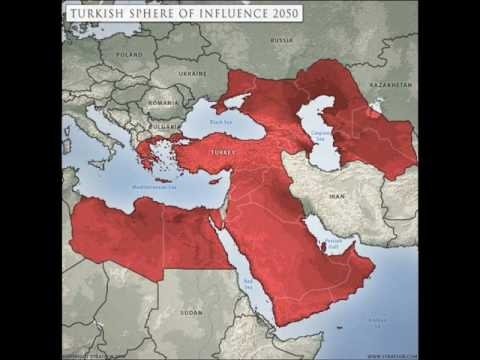
In his UNGA speech, Anastasiades said “Cyprus remains the last European divided country”.
He also accused Turkey of violating the sovereign rights of Cyprus in its internationally recognised exclusive economic zone (EEZ) and continental shelf.
The Greek Prime Minister in his UNGA speech slammed Turkey’s “gunboat diplomacy” saying it undermines prospects to resolve the Cyprus issue.
“Turkey’s illegal drilling activities undermine efforts to restart negotiations and dangerously escalate tensions in the Eastern Mediterranean,” he said.
The Armenian Prime Minister also slammed Turkey in his UNGA speech for “refusing to establish diplomatic relations with Armenia, overtly assisting Azerbaijan against Armenia and Nagorno Karabakh” and termed Turkey “a serious security threat to Armenia and the Armenian people who had experienced the deep tragedy of the Genocide and continue to face the fierce denial of truth and justice”.
French support for Cyprus
France and Cyprus are conducting naval maneuvers off Cyprus as the east Mediterranean island nation is embroiled in a tense dispute with Turkey over offshore gas drilling.
Two French frigates heading to Syria plan to take part in “routine” exercises in Cypriot waters this weekend, a French military spokesman, Col. Frederic Barbry, said Saturday.
One ship arrived Thursday and the other is due to arrive Sunday. France, part of the U.S.-led military coalition, maintains a naval presence off the coast of Syria for monitoring and coordination purposes, Barbry said.
The maneuvers come as a Turkish drill ship, which is escorted by warships, is poised to start drilling inside waters where Cyprus has licensed French energy company Total and Italian partner Eni to explore for gas.
Another warship-escorted Turkish drill ship began drilling in Cyprus’ exclusive economic zone in June. The European Union and other countries have condemned Turkey’s gas search inside Cypriot waters as illegal.
French Defense Minister Florence Parly tweeted Saturday that the joint exercises would enable Cyprus to “assume its responsibilities in its sovereign waters.”
Turkey, which doesn’t recognize the statehood of Cyprus, has insisted it’s acting to protect its economic interests and those of breakaway Turkish Cypriots in the north of the ethnically divided island.
It claims that 44% of Cyprus’ exclusive economic zone falls within Turkey’s continental shelf.
Cyprus Defense Minister Savvas Angelides said the maneuvers send a message about his country “exercising its rights within its exclusive economic zone” as the government strives to counter Turkey’s actions through legal, political and diplomatic means.
Eni and Total together are licensed to carry out exploratory drilling in seven of Cyprus’ 13 blocks that make up its exclusive economic zone. Eni said it expects the work to begin in the first half of next year.
Turkey and Greece have long had strained ties, and were close to military conflict over the Greek islets of Imia in 1996, before the US stepped in to avert disaster. The uninhabited islets in the Aegean Sea, known as Kardak islets, or Imia in Greece, have been the subject of much friction between the two sides.
Greece and Turkey are also in a spat over Ankara threatening to explore for hydrocarbons in areas Greece claims as its own continental shelf.
Though Greece is smaller in size to Turkey, it spends a formidable amount of its budget on defence spending – seventh in the world at $1,230 per capita – and whose fighter pilots regularly engage in mock dogfights with invading Turkish jets.
Rubio, Menendez Introduce Eastern Mediterranean Security and Energy Partnership Act of 2019
U.S. Senators Marco Rubio (R-FL) and Bob Menendez (D-NJ) on 9-April 2019 introduced the bipartisan Eastern Mediterranean Security and Partnership Act of 2019, legislation which aims to reshape U.S. strategy in the Eastern Mediterranean. The legislation would allow the U.S. to fully support the trilateral partnership of Israel, Greece, and Cyprus through energy and defense cooperation initiatives—including by lifting the embargo on arms transfers to the Republic of Cyprus.
The legislation also seeks to update U.S. strategy in recognition of consequential changes in the Eastern Mediterranean, including the recent discovery of large natural gas fields, and a deterioration of Turkey’s relationship with the United States and their regional partners.
Lets hope that the Days of Henry Kissinger are over and the New US Administration will revisit its relationships with countries that are impacted by Imperialist Turkey and help contain Turkey’s Imperialist designs that wants to re-establish the Ottoman Empire.
Also check our previous article titled, “Failed Attempt By Turkey To Become Leader Of Muslim Ummah” where in we provided details how Turkey has failed worldwide even in the Islamic world diplomatically due to its policies of Imperialist Turkey.
Points to Ponder
On one hand Turkey is threatening European Union with unleashing the refugee crisis in Europe by sending millions of Islamist Radicals into Europe as refugees and threaten the culture of freedom of Europe and take over Europe in the process. On the other hand, Turkey is responsible for war in Libya and is behind the blasts in Lebanon.
Turkey despite being NATO member, purchased S-40 Air Defense Missile Systems from Russia despite warnings by US Administration.
Turkey is also aligning closely with China and Pakistan which are part of the Axis of Evil.
What right does Turkey has to continue to remain in NATO?
Why doesn’t NATO throw Turkey Out of its alliance?
In case Turkey plans an action like Iraq taking over Kuwait, will the International community attack Turkey? Will the attack on Belligerent Turkey a signal to China to desist from attacking Taiwan?
Follow us at:-
Twitter Handle: @newscomworld
Instagram Handle: @newscomworld
Parler Handle: @newscommuniquecom
Subscribe our : YouTube Channel https://www.youtube.com/channel/UCnKJQ3gFsRVWpvdjnntQoAA
Like our Facebook Page https://m.facebook.com/News-Communiquecom-103788531007438/
3,542 total views




